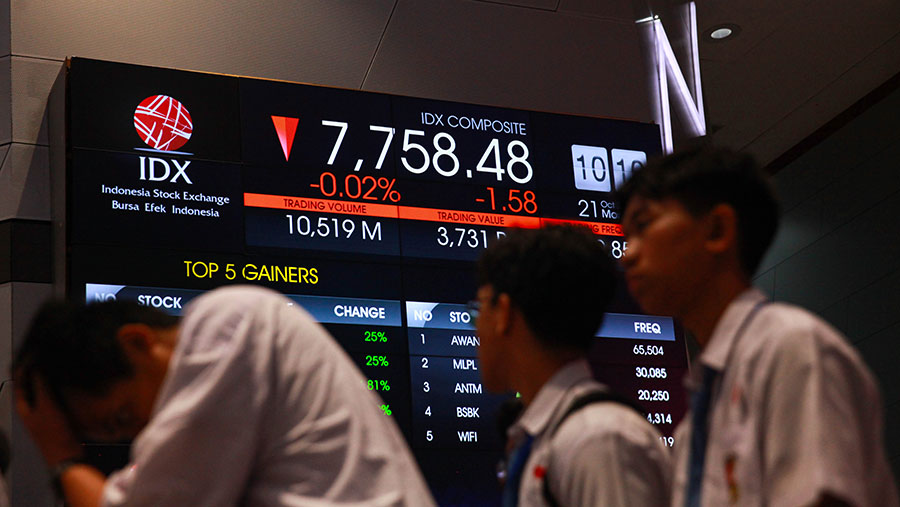The stock market plays a vital role in Indonesia's economy. It is a critical indicator of economic health and investor confidence. The activities on the Indonesian Stock Exchange (Bursa Efek Indonesia or BEI) reflect how investors view the domestic economy. When the stock market is performing well, it suggests that investors have faith in the country's economic stability and growth potential.
The stock market serves as a barometer of confidence. According to the Chairman of Commission XI of the Indonesian House of Representatives, Muhammad Misbakhun, "The capital market plays one of the most important roles in measuring the level of trust in the economy." This statement highlights the importance of stock market performance in understanding investor sentiment toward Indonesia's economic condition.
In fact, a healthy and well-regulated stock market is essential for ensuring economic growth. It provides businesses with the opportunity to raise capital by offering shares to the public. As a result, companies can invest in new projects, expand their operations, and hire more employees, contributing to overall economic development.
The Impact of Stock Market Movements on Investor Confidence
The stock market's performance directly affects investor confidence, both domestically and internationally. For example, when the Jakarta Composite Index (IHSG) plunged by 7% on March 18, 2025, to the level of 6,084, it signaled a dip in market sentiment. This sharp decline led to a temporary halt in trading, demonstrating how vulnerable investor confidence can be to market fluctuations.
In response to such market movements, key financial authorities in Indonesia, such as the Financial Services Authority (OJK), Bank Indonesia (BI), and the Indonesia Deposit Insurance Corporation (LPS), take immediate actions to stabilize the market. This shows the importance of having regulatory bodies that can quickly step in to maintain market confidence and prevent further volatility.
Government Actions to Stabilize the Stock Market
In light of the recent market volatility, the OJK has introduced several measures to stabilize the stock market. One of the key actions was allowing companies to repurchase their shares without needing to hold a General Meeting of Shareholders (RUPS). This policy was announced on March 19, 2025, following the steep decline in the IHSG, to help prevent further market instability and encourage confidence among investors.
Another action taken by the OJK was the suspension of short selling, implemented on March 3, 2025. This step aimed to reduce market volatility by curbing speculative activities that could exacerbate price fluctuations. By taking these preventive measures, the OJK is working to ensure that the market remains stable and transparent, which is essential for fostering long-term economic growth.
The Importance of a Stable and Transparent Capital Market
A stable and transparent capital market is crucial for attracting both local and international investors. The OJK and BEI are committed to ensuring that the stock market operates with high levels of integrity, offering investors a reliable platform to trade securities. This is particularly important for retail investors, as they need to feel confident that their investments are protected and that the market is functioning fairly.
By maintaining a stable market environment, Indonesia can continue to attract both domestic and foreign investment, which is essential for funding infrastructure projects, supporting small and medium enterprises (SMEs), and driving innovation. This, in turn, helps strengthen Indonesia's position in the global economy and promotes economic growth across various sectors.
The Role of Stock Market Regulations in Maintaining Market Stability
Regulations play a key role in maintaining stability and reducing volatility in the stock market. The actions taken by the OJK to implement stock buybacks and the suspension of short selling are examples of how regulations can help stabilize the market during periods of uncertainty. By providing clear rules and guidelines, regulatory bodies ensure that the stock market remains transparent and fair for all participants.
Moreover, the government's proactive approach to managing market fluctuations demonstrates its commitment to creating a healthy investment climate. These regulatory measures not only protect investors but also ensure that the stock market contributes positively to Indonesia's broader economic goals.
PHOTO: BLOOMBERG TECHNOZ
This article was created with AI assistance.
Read More






 Friday, 27-02-26
Friday, 27-02-26







